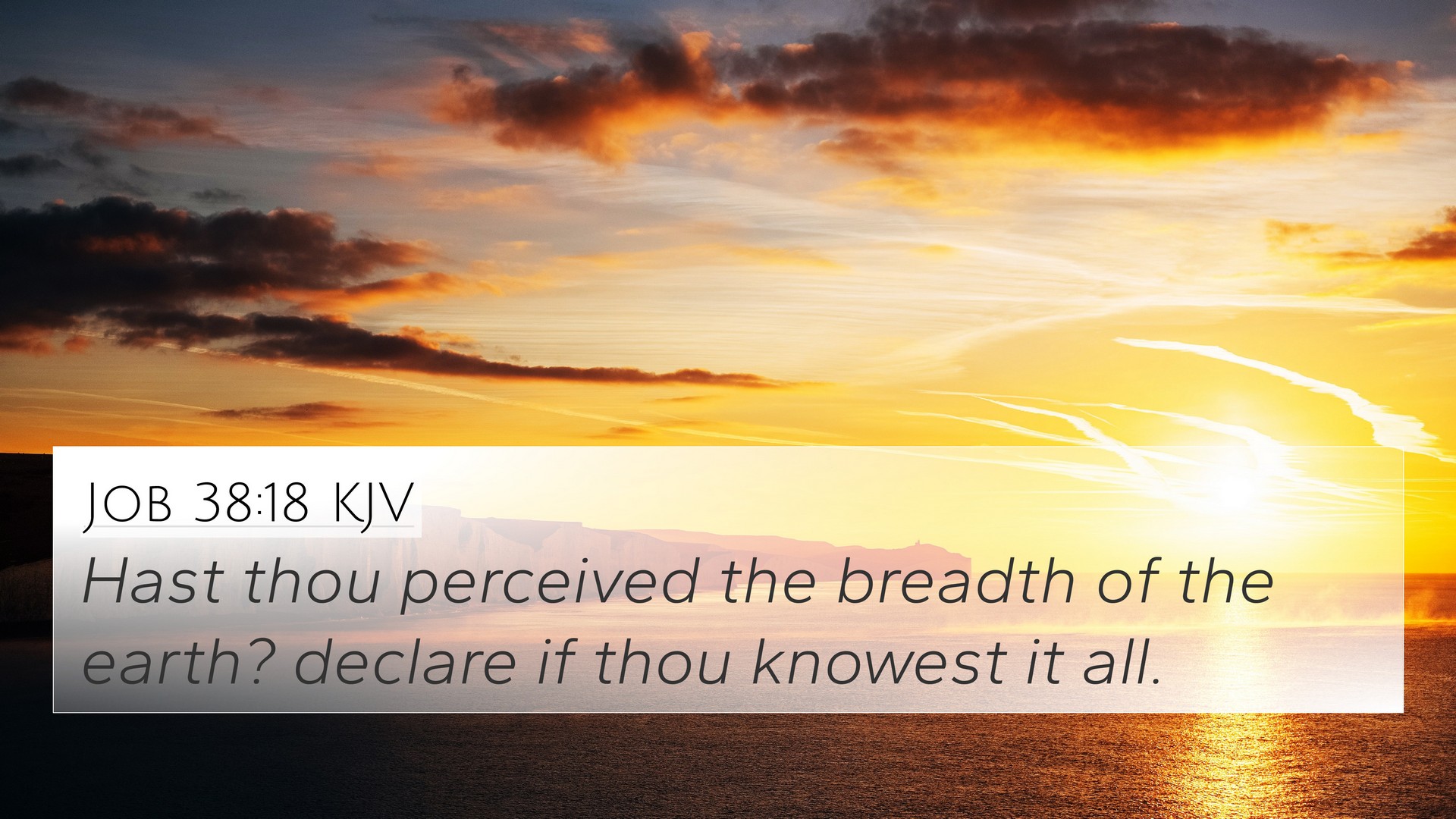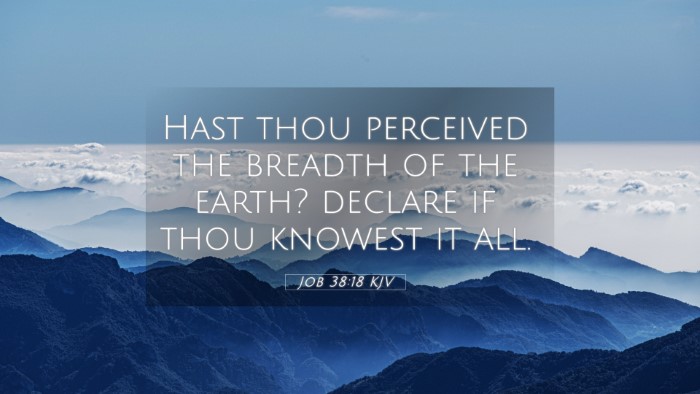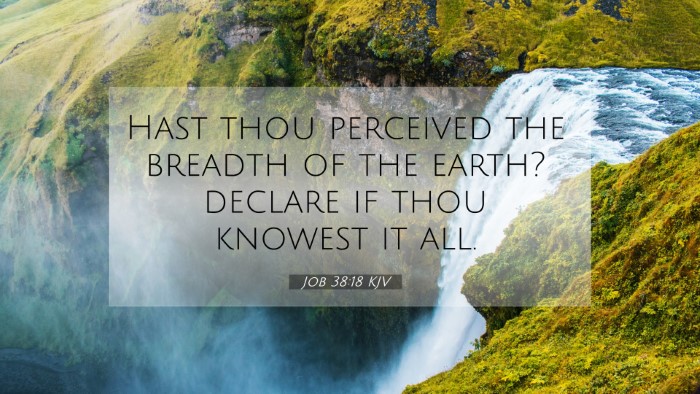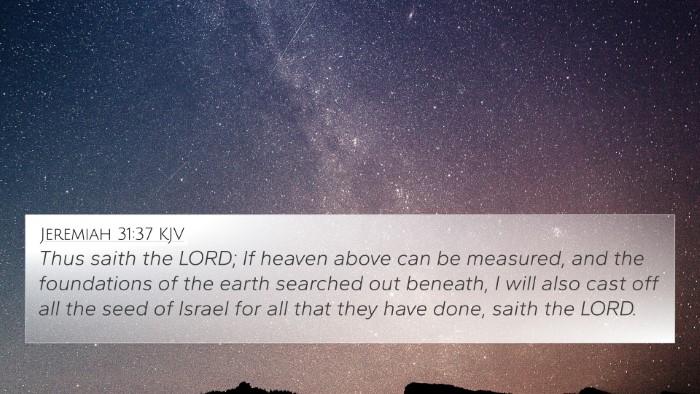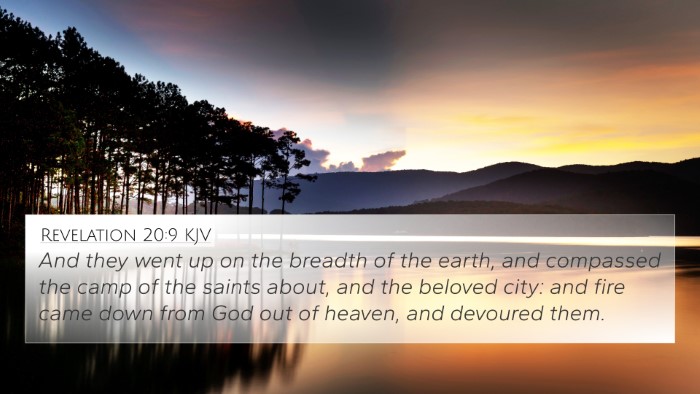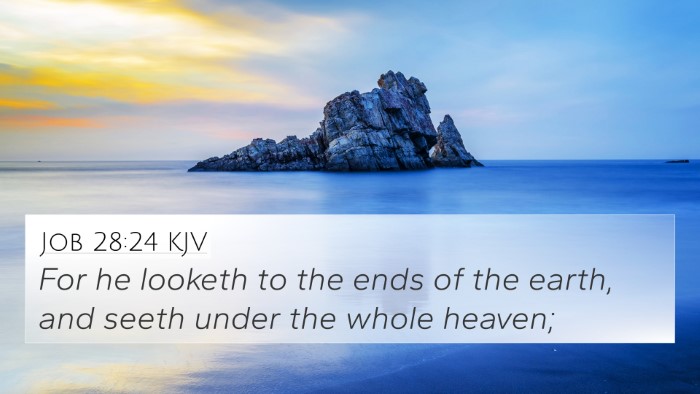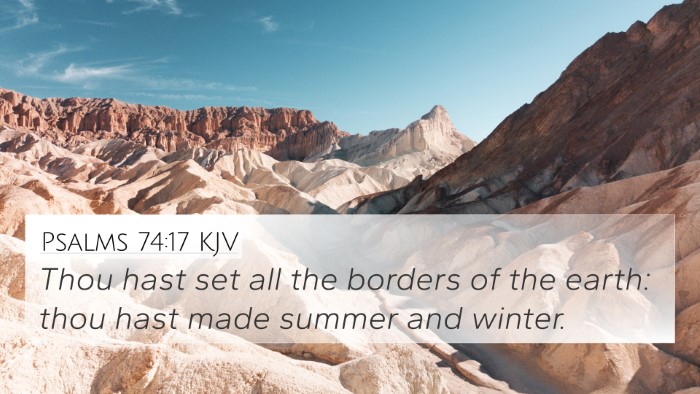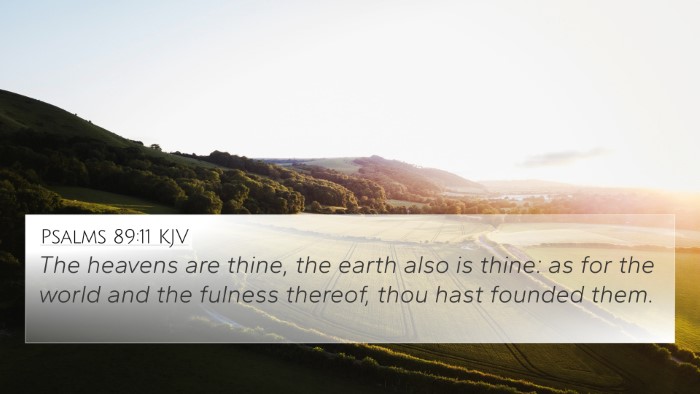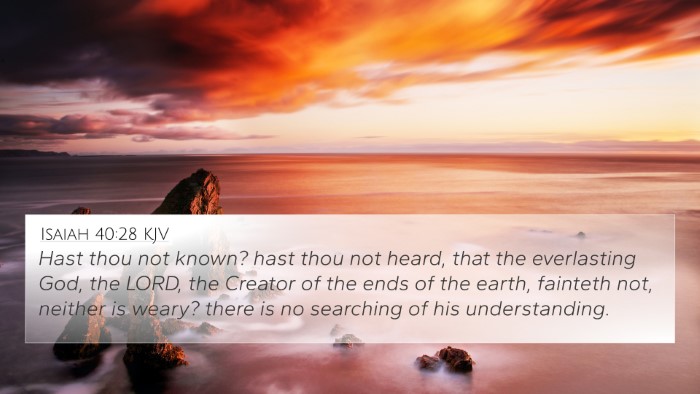Old Testament
Genesis Exodus Leviticus Numbers Deuteronomy Joshua Judges Ruth 1 Samuel 2 Samuel 1 Kings 2 Kings 1 Chronicles 2 Chronicles Ezra Nehemiah Esther Job Psalms Proverbs Ecclesiastes Song of Solomon Isaiah Jeremiah Lamentations Ezekiel Daniel Hosea Joel Amos Obadiah Jonah Micah Nahum Habakkuk Zephaniah Haggai Zechariah MalachiVerse
Job 38:1 Job 38:2 Job 38:3 Job 38:4 Job 38:5 Job 38:6 Job 38:7 Job 38:8 Job 38:9 Job 38:10 Job 38:11 Job 38:12 Job 38:13 Job 38:14 Job 38:15 Job 38:16 Job 38:17 Job 38:18 Job 38:19 Job 38:20 Job 38:21 Job 38:22 Job 38:23 Job 38:24 Job 38:25 Job 38:26 Job 38:27 Job 38:28 Job 38:29 Job 38:30 Job 38:31 Job 38:32 Job 38:33 Job 38:34 Job 38:35 Job 38:36 Job 38:37 Job 38:38 Job 38:39 Job 38:40 Job 38:41